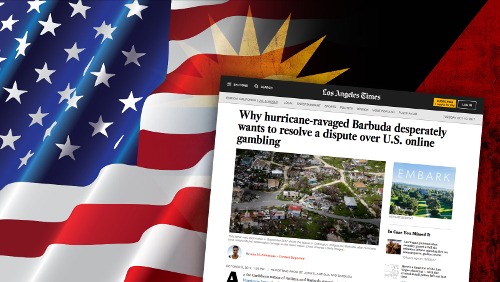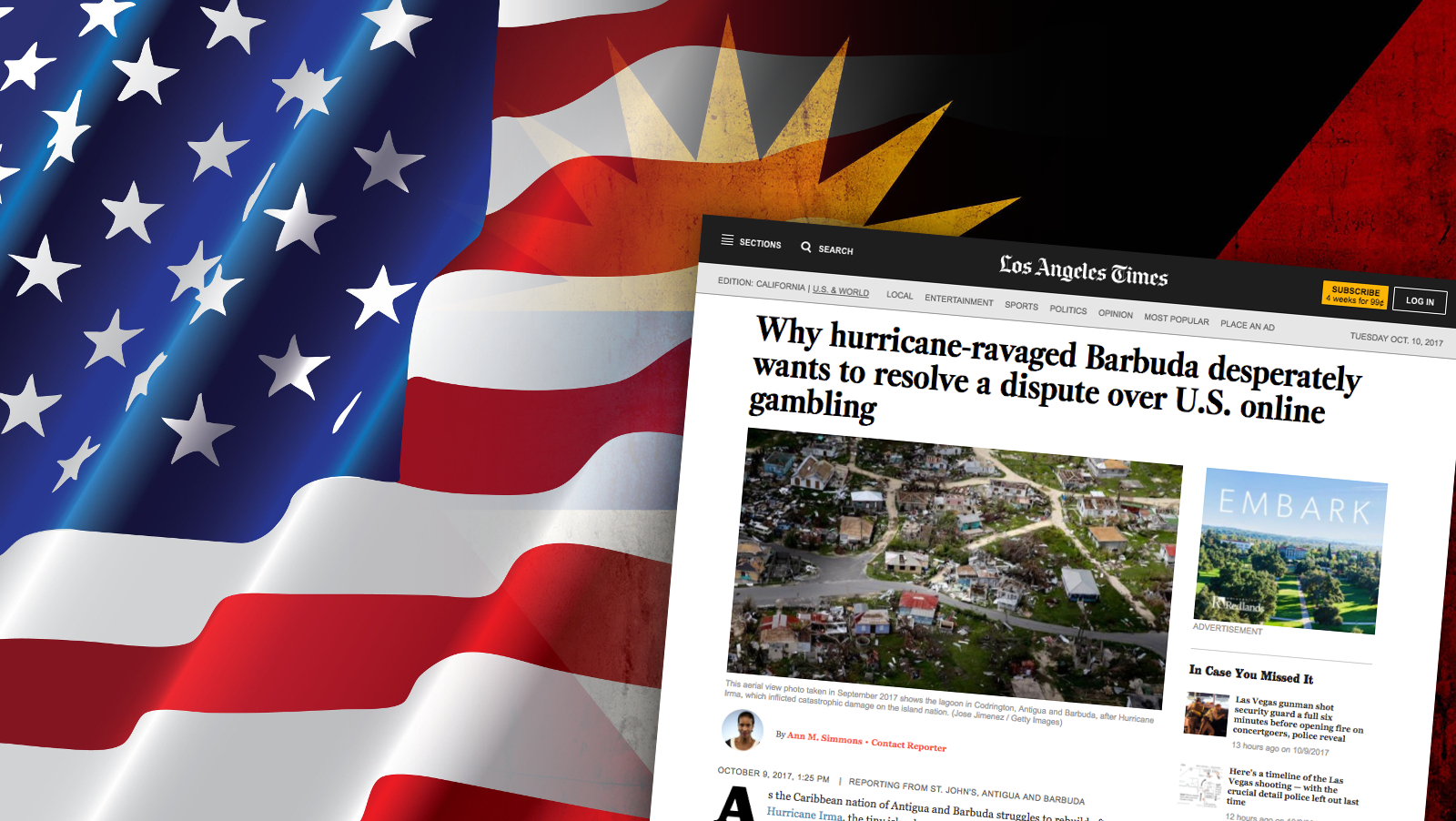 A Los Angeles Times piece on the protracted World Trade Organization dispute between the United States and Antigua & Barbuda contains some quotes that are for once actually worthy of the Trump-favored epithet ‘fake news’.
A Los Angeles Times piece on the protracted World Trade Organization dispute between the United States and Antigua & Barbuda contains some quotes that are for once actually worthy of the Trump-favored epithet ‘fake news’.
On Monday, the Times posted a lengthy and largely accurate article on the 14-year US v. Antigua dispute, focusing on the fact that the hurricane-ravaged island of Barbuda is in desperate need of the over $200m the WTO has authorized Antigua to collect from the US due to the latter nation’s refusal to honor its international trade obligations regarding Antigua-licensed online gambling operators.
After quoting Antiguan Prime Minister Gaston Browne detailing American hypocrisy regarding its trade obligations and America’s nonsensical moral arguments regarding gambling in general, the Times quoted Roosevelt Institute fellow Todd Tucker arguing that the US had “a good legal case for disregarding the WTO decision.”
Leaving aside the fact that the US is the single most prolific filer of WTO complaints and thus isn’t really in a position to pick and choose which rulings it chooses to comply with, Tucker goes on to argue that “a lot of anti-gambling activists and religious groups agree with” America’s decision to ignore the ruling on Antigua’s online gambling industry.
Frankly, if US trade policy is to be based on what some religious groups and single-issue lobbyists prefer, then America should cease all trade with any number of ‘godless’ nations, although that would mean falling even further behind China on the world’s economic stage.
Tucker’s inane justifications don’t stop there, as he also claims America is within its rights to withhold any payments to Antigua because online gambling operators would claim “75%” of any settlement monies.
Tucker claims to have this info straight from Antiguan authorities, but he clearly hasn’t made any such inquiries in three years. Such a scenario might have been plausible under Antigua’s former administration, but PM Browne cleaned house after he was elected in 2014, making it clear that the industry-led team pursuing WTO justice had never formally represented Antigua’s government.
Regardless, if this unfounded fear is what’s keeping the US from honoring its WTO obligations, then it could easily place restrictions on the ultimate destination of any payments made to Antigua. Browne’s government would surely have no objections if it meant the arrival of these long-delayed payments, which are desperately needed to help Barbuda rebuild.
While it’s good to see Antigua’s David v. Goliath struggle against the US finally getting some favorable mainstream US press exposure, one would expect a more substantial vetting of the ‘post-truth’ claims of those who would seek to preserve America’s ‘might = right’ trade policy.
